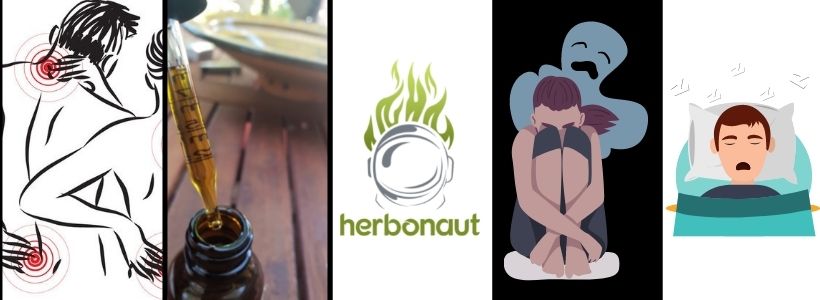
Today you’re going to learn all the potential benefits of CBD and CBD oil.
We analyzed 100+ scientific papers to see what the current consensus is about the benefits of CBD.
Most CBD oils contain more hemp-derived compounds than CBD. The most important of these other are cannabinoids and terpenes.
As you’ll learn in the next few minutes:
All these extra compounds are also exactly the reason why a full-spectrum CBD oil is the most effective way to get the benefits of CBD.
Here’s why:
Scientific evidence shows that other hemp-derived cannabinoids and terpenes act synergistically to CBD.
If you’re looking for a high-quality full-spectrum CBD oil, go to our list of best CBD oils.
But a discussion on the benefits of CBD wouldn’t be complete without highlighting its side effects.
CBD has many potential benefits. But there’s little scientific proof that CBD can truly ‘cure’ anything.
Most benefits of CBD relate to easing the symptoms of various conditions. And even then, clinical evidence is rare.
Keep reading!
Below you’ll find the potential benefits of CBD categorized per type of condition:
The Benefits of CBD Oil
Ever since researchers started studying cannabis, one cannabinoid has received the most attention:
THC.
But in the past decades, more and more attention is given to a different cannabinoid:
CBD.
Here’s why:
While THC is known to have medicinal value for a variety of conditions, over the years, CBD turned out to be more potent as a beneficial agent for some conditions…
And it comes with a HUGE benefit compared to THC:
CBD has no psychoactive properties.
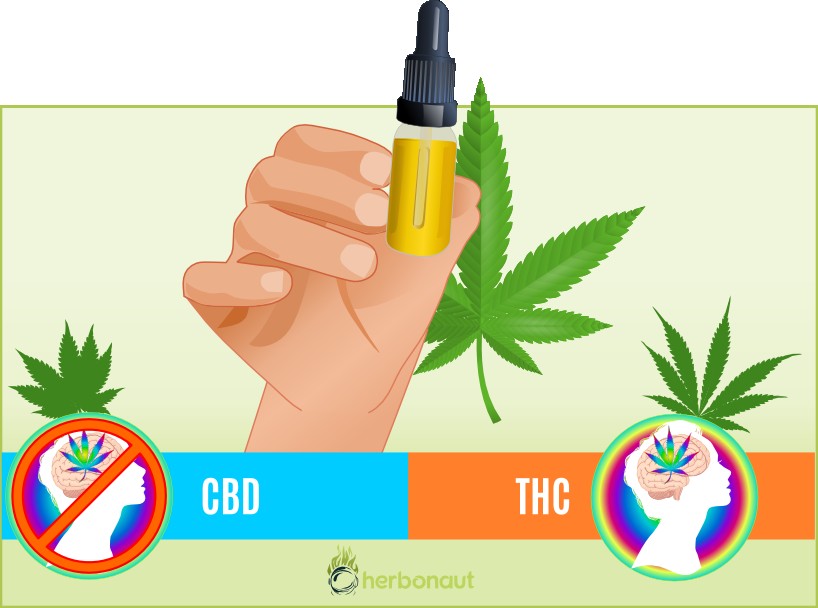
CBD products with low concentrations of THC can’t get you high like marijuana. And because you can’t get high with CBD oil, it’s:
- More convenient to use (you can go about your daily life without interference), and;
- More widely available compared to products containing a high concentration of THC.
THC-free CBD oil is a legal product in most parts of the world. Most countries even allow a little bit THC in CBD oils (0.3% in the USA and 0.2% in Europe).
The fact that CBD oil is so easy to get, could be great news for anyone looking to improve his/her health.
Next up we’ll explore all the potential benefits of CBD.
Starting with the type of condition that unfortunately, in this day and age, a lot of us suffer from…
CBD Oil Benefits for Pain-Related/Inflammatory Conditions
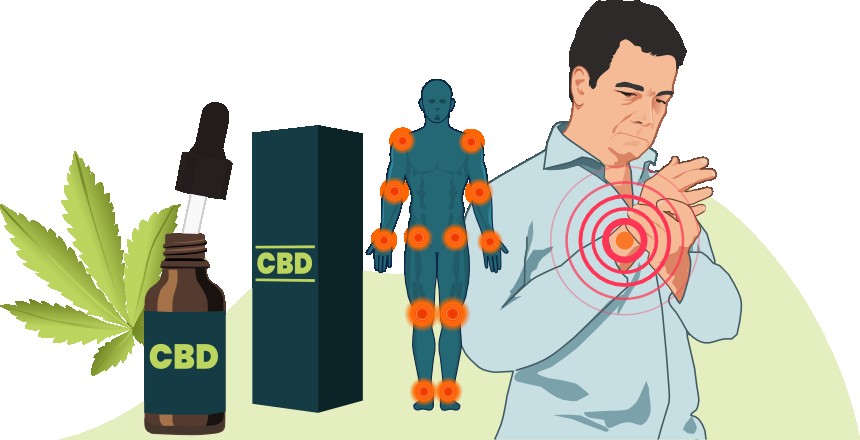
1. CBD Could Help Reduce (Chronic) Inflammation (human studies)
If you eat a modern diet, you potentially suffer from inflammation (1).
Some researchers think that the main cause of chronic inflammation is diet. It’s thought that especially:
- A high amount of refined sugars;
- Refined vegetable oils;
- Processed foods, and;
- A highly off-balance omega-6 (n-6) to omega-3 (n-3) ratio (too high consumption of omega-6 fats),
are the main contributors to chronic inflammation when talking about diet-caused inflammation.
The worst part:
It receives little to no medical coverage.
Why is this such a big deal?
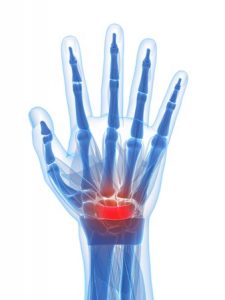 Chronic inflammation is a major risk factor for developing diseases (2), like:
Chronic inflammation is a major risk factor for developing diseases (2), like:
- heart disease;
- diabetes;
- cancer, and;
- aging and disability in general.
One way to reduce the risk of these diseases is to reduce inflammation in your body to an absolute minimum.
Inflammation can be reduced with anti-inflammatory, anti-oxidant-rich foods and exercise.
But CBD is extremely powerful anti-inflammatory agent as well. A few studies even found it to be more potent than aspirin as an anti-inflammatory compound (3, 4).
For example:
A review study found that the anti-inflammatory and anti-oxidant effects of CBD could have a role in inflammatory diseases (5).
CBD is very effective at reducing inflammation through:
- its anti-oxidant properties, and,
- the targeting of inflammation-related intracellular signaling events.
And it does this without having psychoactive side effects like THC.
2. CBD Could Help with Pain Relief (mostly animal studies, a few human studies)
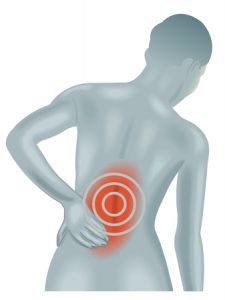
Chronic pain is a highly impactful condition.
Whether you’re suffering acute or chronic pain, here’s the good news:
Various studies support the notion that CBD could help with pain relief.
There have been dozens of studies that have proven CBD can act as a potent painkilling agent (6).
But here’s the kicker: most of these studies were done on animals.
There’s a lot of anecdotal evidence to support CBD oil as a potent natural painkiller. Clinical evidence is rare. But there are a few human studies.
For example:
A study with kidney transplant patients found CBD to have painkilling effects (7). The exact effects differed widely based on:
- dose, and,
- individual reaction.
Most patients had a partial improvement in pain. One patient had a total improvement in pain. And one patient experienced no benefit.
A more recent study with chronic pain patients found that CBD-rich hemp extract improved quality of life in 94% of patients (8). 53% of patients reduced or eliminated their opioids within 8 weeks after adding CBD-rich hemp extract to their regimens.
There’s no guarantee that CBD will help with your pain problem.
If you want to read our full guide on CBD oil and pain, click the link below:
3. CBD Could Help with Arthritis
Several studies found CBD can relieve symptoms of arthritis, like pain and inflammation.
For example:
A 2000 mice study found that oral CBD blocked the progression of collagen-induced arthritis (9).
A more recent study done on mice, published in 2016, found that the application of topical CBD gel (10):
significantly reduced joint swelling, limb posture scores as a rating of spontaneous pain, immune cell infiltration and thickening of the synovial membrane in a dose‐dependent manner, without evident side‐effects
4. CBD Could Help with Inflammatory Bowel Disease
You already know that CBD has anti-inflammatory effects.
This means CBD may be useful in the treatment of any inflammatory disease. One common inflammatory disease is inflammatory bowel disease.
Studies show CBD may have beneficial effects for inflammatory bowel disease.
For example:
A 2011 study found that CBD reduces inflammation in colonic tissue from Ulcerative Colitis patients. Ulcerative Colitis is a form of inflammatory bowel disease (11).
CBD Oil Benefits for Mental Health Disorders (Anxiety, Depression, etc.)

5. CBD Could Help with Anxiety Relief (human studies)
 If you have a social anxiety disorder, you’ll be glad to know there are dozen studies that have shown CBD can reduce SAD.
If you have a social anxiety disorder, you’ll be glad to know there are dozen studies that have shown CBD can reduce SAD.
For example, a 2010 study compared 2 groups of SAD patients on anxiety levels (12). The first group was given an oral dose of CBD, while the second group got a placebo. The CBD-group had a significant decrease in anxiety levels, while the placebo group didn’t.
A different study found that SAD patients who did a public speaking test and used CBD right before the test (13), had:
- reduced anxiety,
- reduced cognitive impairment, and,
- better speech performance.
Public speaking is a reliable way to trigger social anxiety.
There’s also plenty of anecdotal evidence showing CBD may reduce anxiety. A simple search on Reddit will show you.
The bottom line is:
There’s scientific evidence that shows CBD reduces anxiety.
If you want to read our full guide on using CBD oil for anxiety, click the link below:
6. CBD Could Help with Depression (only animal studies)

Human studies are rare. But there are several animal studies that show a positive effect of CBD on depression. The best part? These studies show CBD has anti-depressant effects, without any negative side effects.
For example:
A 2014 review study found that CBD has antidepressant effects by activating 5-HT1A receptors (14).
The 5-HT1A-receptor is a subtype of the 5-HT receptor. This receptor is a serotonin subtype receptor. When it’s active, it increases serotnin neurotransmitter activity. The serotonin neurotransmitter is also known as the ‘happiness hormone.’
Scientific research shows that activation of the 5-HT1a receptor has health benefits:
- anxiolytic (anxiety decreasing) effects;
- prosocial effects;
- decreased aggression;
- decreased impulsivity;
- analgesic (painkilling) effects.
Now:
Most CBD-depression studies are animal studies. But the way the 5-HT1A-receptor receptor works in mice is very similar to the way it works in humans.
7. CBD Could Be a Potent Antipsychotic for Schizophrenia Patients
While THC, the psychoactive cannabinoid in cannabis has been linked to the development of schizophrenia and psychosis in persons that have a susceptibility towards psychiatric disorders…
CBD has been shown to be a potent antipsychotic in various studies.
For example, a 2012 study showed that CBD is as potent an antipsychotic as amisulpride (15). Amisulpride is one of the most used medicines in the treatment of schizophrenia. CBD was as effective, but had fewer negative side-effects than amisulpride.
8. CBD Could Help with Addictions (animal and human studies)
 Addictions vary in severity and impact.
Addictions vary in severity and impact.
Some addictions are mild, while others can be devastating.
Research found CBD may be useful for treating addictions.
In 2015, researchers reviewed 14 studies that examined CBD as an intervention for addictive behaviors (16).
They found that CBD could help with the following addictions:
- opioid;
- cocaine;
- psychostimulant;
- cannabis and;
- tobacco addictions.
The exact mechanism of how CBD helps with addictions is unclear. But CBD influences many neural circuits involved in addiction and subsequent drug-seeking behaviors.
9. CBD Could Help with Insomnia
Various studies have found that CBD has sleep-inducing and sedative effects.
For example:
One study with insomnia patients found 160mg CBD increased sleep duration compared to placebo (17).
A more recent case study with a young patient with anxiety-provoked sleep disorder (18), found that the following:
Daily use of 15-25mg of CBD oil, reduced anxiety and insomnia that was secondary to her PTSD.
CBD may normalize rapid eye movement sleep via its anxiety-reducing effect.
Also Read: How to Use CBD for Sleep
CBD Oil Benefits for Neurological/Neurodegenerative Disorders
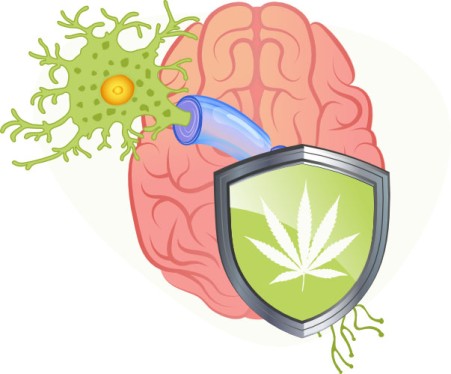
10. CBD Could Help with Epilepsy / Seizures (human studies)
There are various effective epilepsy drugs. But these drugs don’t work for everyone.
In the 1980s, researchers already found that 200-300mg CBD taken daily reduced convulsive crises in 7 of 8 epilepsy patients (19).
A more recent study found that CBD reduces seizures in patients who are resistant to traditional treatments (20).
In 2018, a CBD drug named Epidiolex got approved by the FDA for the treatment of certain forms of epilepsy (21). Epidiolex literally is CBD in an oral solution.
11. CBD Could Help with Multiple Sclerosis (MS)
One symptom which has a major effect on the daily life of many MS patients is spasticity.
Traditional drugs for MS-induced spasticity exist. But these treatments are ineffective for a large amount of MS patients.
Anecdotal evidence shows that CBD products are effective in reducing MS-induced spasms.
But there’s even stronger evidence:
A 2012 study found that inhaled cannabis had a beneficial effect on spasticity among MS patients (22). These patients received insufficient relief from traditional treatments. Cannabis, of course, contains way more cannabinoids than CBD. So with these types of studies, you can’t fully attribute the effects to CBD.
Sativex is a mouth spray drug that contains THC and CBD in a 1:1 ratio.
An earlier 2016 study found that Sativex reduces spasticity in MS patients (23). Again, in this case, you can’t attribute the effect fully to CBD.
In both of these studies, a lot of the beneficial effects could also come from THC. CBD oil usually doesn’t contain large amounts of THC. THC is illegal in most places.
A few studies looked at the effects of only CBD on MS-related conditions.
For example:
A 2013 study with mice that got exposed to the “Theiler’s murine encephalomyelitis virus” found that CBD (24):
- reduces inflammation, and,
- improves motor deficits.
This virus causes Theiler’s murine encephalomyelitis virus-induced demyelinating disease (TMEV-IDD).
MS is not exactly the same as TMEV-IDD. But TMEV-IDD has similar histological features as MS. It remains one of the most used viruses to research MS.
12. CBD Could Help Improve Well-Being and Quality of Life in Parkinson’s Disease Patients
Parkinson’s Disease (PD) is a neurodegenerative disease that progressively kills brain cells. Some of these brain cells influence movement.
CBD has neuroprotective effects. Yet, there’s no evidence that CBD improves psychomotor dysfunction associated with Parkinson’s Disease.
That said, one study with PD patients found that 300mg of CBD, taken daily improved (25):
- general sense of well-being, and,
- quality of life.
Well-being and quality of life were divided in the following three sub-categories:
- ‘Daily life activities’,
- ‘Emotional well-being’, and;
- ‘Mobility’.
In all three categories, 300 mg of CBD taken daily had a positive effect.
13. CBD Could Help with Alzheimer’s Disease (AD) (animal studies)
Alzheimer’s Disease is a neurodegenerative disease. It’s characterized by an ongoing inflammatory condition in the brain. It leads to a progressive loss of neurons, which in turn leads to cognitive deficits.
Microglial activation plays an important role in neurodegenerative diseases like AD. Microglia are the resident immune cells of the central nervous system.
Studies found CBD to be neuroprotective by preventing β-amyloid (Aβ)-induced microglial activation.
A 2011 study found that CBD administered to Aβ-injected mice was able to counteract:
- inflammation, and,
- cognitive deficits,
associated with β-amyloid (Aβ)-induced microglial activation (26).
Further research should show whether CBD has the same effects on the human brain.
14. CBD Could Help with Symptoms of Huntington’s Disease (HD)
Huntington’s disease is a neurodegenerative disease that begins with involuntary, jerky movements. It progresses into serious motor, behavioral, and cognitive alterations.
Studies have shown that CBD has neuroprotective effects in rat models of HD (27).
But a clinical study with 15 HD patients showed that 10 mg/kg/day CBD ingested orally for 6 weeks had no positive effect. It was safe, but did not affect the severity of the chorea and other symptoms of the disease (28).
Maybe changes in doses or duration of use have a different effect.
15. CBD Could Help with Primary Lateral Sclerosis (PLS)
Primary lateral sclerosis is a neuromuscular disease. It causes the nerve cells that control voluntary muscle movement to degenerate and die.
The result is that the muscles become weaker and weaker. It can result in death when the breathing muscles have become too weak, for example.
There are no clinical studies that looked at the effects of CBD on PLS. But a case study found a 40-year old PLS-patient effectively self-medicated with CBD oil to treat spasticity symptoms (29).
16. CBD Could Help with Amyotrophic Lateral Sclerosis (ALS)
Amyotrophic Lateral Sclerosis is a neuromuscular disease. It causes death of neurons that control voluntary muscles.
It’s characterized by:
- stiff muscles,
- muscle spasticity, and,
- gradually worsening weakness due to muscles decreasing in size.
Ultimately, it can result in death.
A recent study found an oral spray containing both THC and CBD in a 1:1 ratio reduced spasticity in ALS patients (30).
Again, it’s unclear if this effect is related to CBD, THC, or the combination of CBD and THC in a 1:1 ratio.
17. CBD can Improve Symptoms Associated with Dystonia up to 50%
Dystonia is a neurological movement disorder that causes abnormal movements and muscle contractions.
A 1986 study found that daily intake of 100-600mg CBD together with standard dystonia medication, improved dystonia up to 50% (31).
Some side-effects reported after CBD use were:
- Mild and included hypotension;
- Dry mouth;
- Psychomotor slowing;
- Lightheadedness, and
- Sedation.
Another interesting finding of the study:
CBD at doses over 300 mg/day made resting tremor worse in patients that had ‘Parkinsonian’ features.
The researchers conclude that CBD appears to have antidystonic. But it also may Parkinsonism-aggravating effects in humans, at least in these doses.
Further research is needed.
18. CBD Could Help with Spinal Cord Injury (SCI)
Spinal cord injury can result in loss of psychomotor and/or emotive function.
Animal research that looked that the effects of CBD on spinal cord injury is promising.
For example:
A 2012 mice study found that daily CBD use had a beneficial effect on the locomotor recovery of mice with spinal cord injury (32).
CBD Oil Benefits for Bone-Related Conditions
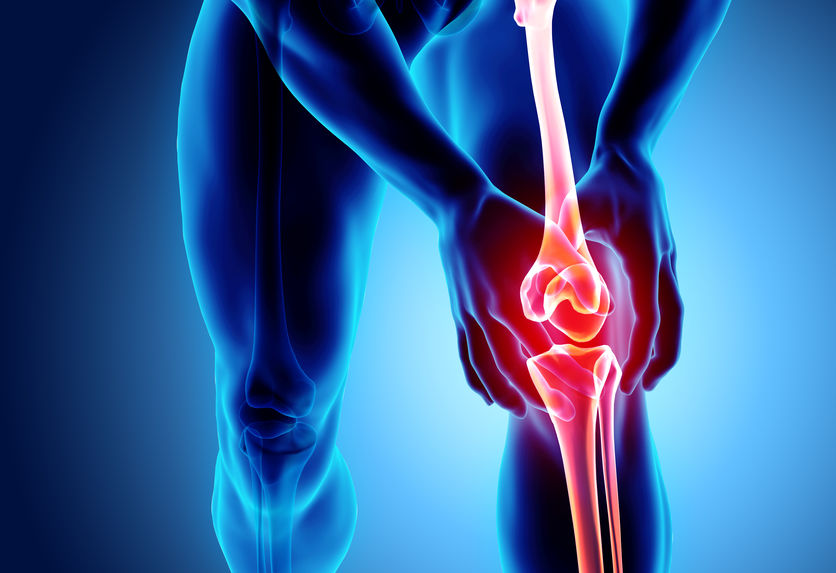
19. CBD Could Help with Degenerative Disc Disease (DDD)
Degenerative disc disease is the degeneration of intervertebral discs located in the spine. It can lead to severe chronic neck and back pains. It’s thought to be the main contributing agent to chronic lower back pain.
A 2014 rat study found that repeated injection of CBD has anti-degenerative properties. DDD symptoms were improved, even 15 days after CBD injection was stopped (33).
The researchers note that CBD’s anti-inflammatory effects may be responsible for this effect.
Further research should show if that’s really the case.
20. CBD Could Help with Fracture Healing
It’s known that cannabinoid ligands, at least partially, regulate bone mass.
One rat study found that CBD increases collagen crosslinking (33). Collagen crosslinking is associated with improved fracture healing.
CBD Oil Benefits for Cancers
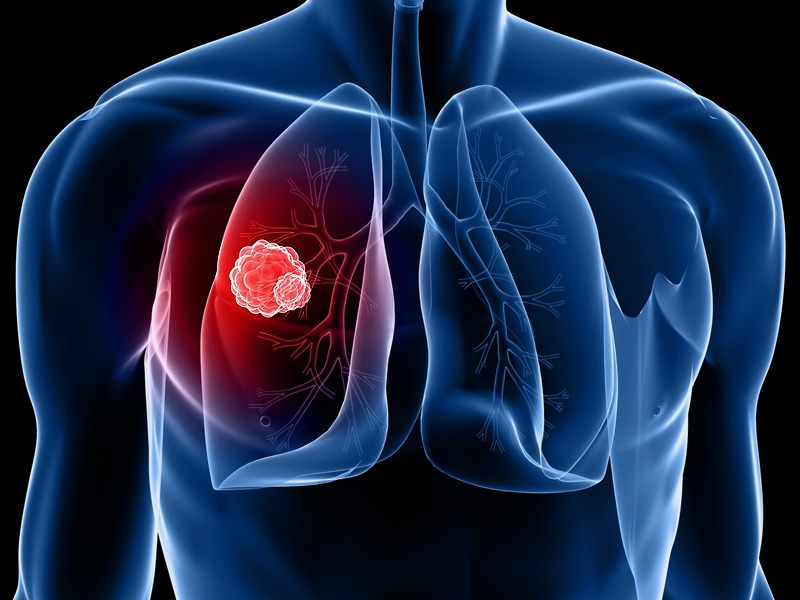
21. CBD and Bladder Cancer
A 2010 study looked at the effects that CBD has on calcium influx into urothelial carcinoma cells. CBD interacts with transient receptor potential vanilloid 2 (TRPV2). TRPV2 influences calcium influx into urothelial carcinoma cells. The study found that CBD increased intracellular calcium concentrations in bladder cancer cells. A specific set of bladder cancer cells (T24) progressively decreased with increasing CBD levels (35).
22. CBD and Brain Cancer
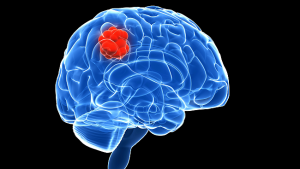 Although research is in its infancy and we have to be very careful with making any conclusions about CBD’s potentially beneficial effects on cancer…
Although research is in its infancy and we have to be very careful with making any conclusions about CBD’s potentially beneficial effects on cancer…
A 2004 study looked at the effects of CBD on human glioma (a specific type of brain tumor) cells. It found that when CBD reduced the survivability of glioma cells in a culture medium. CBD also inhibited the growth of implanted U87 human glioma cells (36).
23. CBD and Breast Cancer
Although the exact mechanism at play remains to be explored further…
Different studies show that cannabinoids like CBD have anti-tumor activity in breast cancers.
For example:
A 2011 study found CBD induced cell death of breast cancer cells. The effect was observed independent of cannabinoid and vanilloid receptor activation (37).
24. CBD and Colon Cancer
Colon cancer is one of the most common cancers.
Different studies looked at the effects of cannabinoids on colon cancers.
One study looked at the effects of CBD-rich cannabis extract on colon cancer cells (38).
The study found that the CBD-rich cannabis extract reduced colon carcinogenesis. It also inhibited the rapid reproduction of colorectal cancer cells, via CB1 and CB2 receptor activation. CB1 and CB2 receptors are also called cannabinoid receptors.
25. CBD and Leukemia
Leukemia is the name for a group of blood cancers. The body’s blood-forming tissues include the bone marrow and the lymphatic system.
Different studies show that CBD can have an apoptosis-inducing effect on human leukemia cells. Aptosis means the death of cells.
For example, a 2006 study done on mice and human leukemia cells (39) found that:
exposure of leukemia cells to as low as 2.5 mM CBD led to significant levels of apoptosis, suggesting that leukemia cells may be highly sensitive to CBD-induced apoptosis
In other words, CBD is associated with death of leukemia cells.
Further research should find out under which exact circumstances this effect holds true.
26. CBD and Lung Cancer
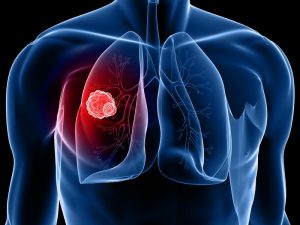 Lung cancer is the second most common cancer in the world.
Lung cancer is the second most common cancer in the world.
Studies have shown that CBD can have a beneficial effect in killing lung cancer cells.
For example:
A study done in 2013 found that CBD decreased cell life in lung cancer cell lines (A549, H460). These were primary cells from a patient with lung cancer (40).
27. CBD and Prostate Cancer
Prostate cancer is the number one cancer risk and the second most deadly cancer among men.
Studies show that CBD can have anti-tumor effect when introduced to prostate tumors.
For example, a 2014 study (41) found that:
cannabidiol is a potent inhibitor of cancer cell growth, with significantly lower potency in non-cancer cells. The mRNA expression level of cannabinoid receptors CB1and CB2, vascular endothelial growth factor (VEGF), PSA (prostate specific antigen) are significantly higher in human prostate cell lines. Treatment with Cannabis extract containing high CBD down regulates CB1, CB2, VEGF, PSA, pro-inflammatory cytokines/chemokine IL-6/IL-8.
In other words: the researchers found that CBD could aid in killing prostate cancer cells.
CBD Benefits for Other Types of Conditions

28. CBD Could Help with Appetite Suppression and Weight Loss
Animal studies show that CBD is effective in suppressing appetite and promoting weight loss.
For example:
A 2011 study found that rats injected with CBD doses of 2.5 and 5mg/kg/day had much less bodyweight gain than rats who didn’t receive CBD. Both groups of rats had a larger than average food intake (42).
29. CBD Could Help with Nausea
It’s already accepted that THC can help with nausea. But there are also studies indicating that CBD could be helpful with nausea.
For example:
A 2002 study found that CBD can interfere with nausea that’s caused by lithium chloride in mice (43). The researchers conclude that CBD may be valuable in the treatment of chemotherapy-induced nausea. Compared to THC, with the advantage that it has no psychoactive effects.
30. CBD Could Help with Stroke, Hypoxic-Ischemic, and Other Cardiovascular Conditions
Animal research shows that CBD could be beneficial to the cardiovascular system.
For example:
A 2013 study found that CBD has direct actions on isolated arteries. CBD caused both acute and time-dependent reduction in vascular tension (44).
The researchers also found that CBD protected against the vascular damage caused by:
- a high glucose environment,
- inflammation, or,
- the induction of type 2 diabetes in animal models.
They also found that CBD reduced infarct size and increase blood flow in animal models of stroke.
CBD’s anti-oxidant and anti-inflammatory effects may be beneficial for the cardiovascular system.
31. CBD Could Help with Graft-Versus-Host-Disease (GVHD)
In organ transplant patients, the body can turn against newly transplanted organs. Sometimes the body sees the new organ as an invader. When someone’s body turns against genetically different and transplanted tissue it’s called graft-versus-host-disease.
One study done in 2015 found that CBD could help with acute GVHD (45).
48 patients undergoing stem cell transplantation got 300 mg/day of oral CBD, starting 7 days before transplantation until day 30.
None of the patients developed acute GVHD while consuming CBD.
32. CBD Could Help with Psoriasis
Psoriasis is an inflammatory disease of the skin. It causes red scaly patches to appear on the skin that can itch, burn, and/or sting.
A study done in 2007 found that the following cannabinoids:
- THC,
- CBD,
- CBN, and,
- CBG,
all inhibited the increase of keratinocytes (a type of skin cell) in a concentration-dependent manner. The increase of keratinocytes lies at the basis of psoriasis (46).
33. CBD Could Help with Methicillin-Resistant Staphylococcus Aureus (MRSA)
It’s a scientific fact that most cannabinoids have anti-bacterial properties.
But studies that looked at the effects of cannabinoids on human-relevant bacterial infections are rare.
That said, there are a few studies that looked at exactly this.
For example:
A 2008 study found that the following cannabinoids:
- CBD,
- CBC,
- CBG,
- THC, and,
- CBN,
had potent antibacterial effects against a variety of Methicillin-Resistant Staphylococcus Aureus strains (47).
These strains of bacteria can cause very difficult-to-treat infections in humans.
34. CBD Could Help with Diabetic Complications
Research shows CBD may have potential for diabetic complications.
For example, a 2010 study (48) found that:
CBD attenuated myocardial dysfunction, cardiac fibrosis, oxidative/nitrative stress, inflammation, cell death, and interrelated signaling pathways. Furthermore, CBD also attenuated the high glucose-induced increased reactive oxygen species generation, nuclear factor-κB activation, and cell death in primary human cardiomyocytes
In other words: CBD reduced all sorts of health complications that come with diabetes.
35. CBD Can Help with Diseases of the Liver (animal studies)
While widely legal and socially accepted substances like alcohol can cause liver diseases like liver fibrosis…
Research shows that CBD can help with the same liver diseases.
For example:
In 2011 researchers found that CBD induces death of hepatic stellate cells (HCS) in mice (49). These cells are a major cause of the development and progression of liver fibrosis.
The researchers conclude that CBD could function as a therapeutic agent for the treatment of liver fibrosis. Further research is needed to explore the benefits of CBD for liver fibrosis.
36. CBD Could Help with Glaucoma
Glaucoma is an eye disease that can ultimately lead to irreversible blindness. It occurs with the death of retinal ganglion cells through apoptosis.
It concluded that because cannabinoids:
- effectively lower intraocular pressure (one of the main risk factors in glaucoma), and,
- have neuroprotective effects,
they could be useful in the treatment of glaucoma (50).
CBD specifically, has antioxidant properties that can prevent neuronal death. Neuronal death is associated with glaucoma.
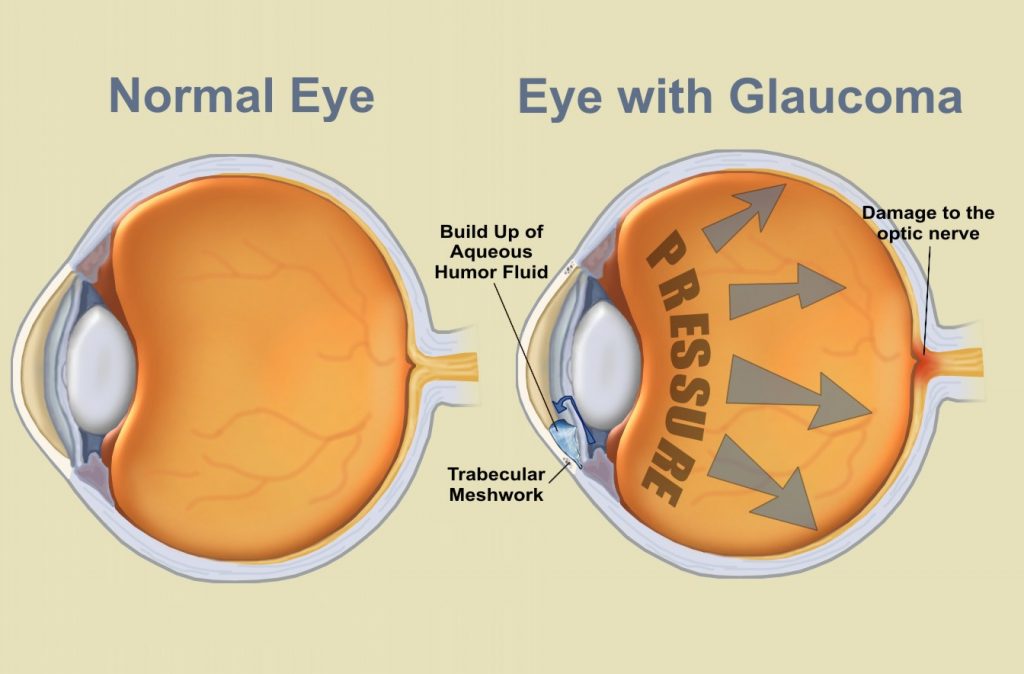
Is CBD Oil Beneficial for Everyone?
Adequately manufactured full spectrum and organic CBD oil, which has in it all the:
- other cannabinoids,
- terpenoids, and,
- flavonoids,
is a superfood of the highest order.
This type of product is PACKED with anti-oxidant/anti-inflammatory compounds.
CBD is a major one of course.
But all hemp compounds synergize in a process called ‘the entourage effect’ (51).
That’s why it’s critical that you get full-spectrum CBD oil. It has all the cannabinoids, terpenoids, and flavonoids that are present in the hemp plant.
CBD oil is not officially a medicine, but I will call it a superfood of the highest order.
Here’s what CBD does for me:
- Helps me to sleep at times where I have trouble falling asleep;
- Helps relax and unwind;
- Reduces feelings of stress.
CBD oil is not a wonder pill that can cure disease, however.
The Benefits of Full Spectrum CBD Oil
Full-spectrum CBD oil has two main benefits compared to other types of CBD oil.
The first benefit of full-spectrum CBD oil is that it has various other beneficial hemp-derived compounds.
For example:
The cannabinoids CBG and CBC are associated with anti-inflammatory effects as well.
The terpenes linalool and limonene are associated with anti-anxiety effects.
With a full-spectrum CBD oil, you also get the benefits of these other compounds.
The second benefit of full-spectrum CBD oil is also related to these other hemp compounds. Scientific evidence shows that CBD is more effective when taken together with these other hemp compounds (52).
When taking full-spectrum CBD oil, not only do you get to experience the beneficial effects of different compounds than CBD…
But you also get to experience CBD in the most potent way possible.
To learn more about the pros and cons of different types of CBD products, click the link below:
How Does CBD Oil Make You Feel?
CBD oil doesn’t contain high amounts of THC. This means within regular doses, CBD oil isn’t psychoactive. You usually won’t get ‘high’ with a regular dose of CBD oil.
As explained in the list of benefits, some studies found CBD to be effective in reducing feelings of:
- Anxiety, and;
- Depression
This means CBD oil could make you feel less anxious and/or less depressed.
What Are CBD Oil’s Side Effects?
Although side-effects with low doses are rare, studies have found some side effects:
- Diarrhea;
- Pyrexia;
- Decreased appetite, and;
- Sleepiness/drowsiness.
To dive deeper into the topic of potential side effects of CBD oil and other health risks, click the link below:
What Are CBD Oil’s Interaction with Other Drugs?
We highly advise against using commercially sold CBD oil for medical reasons.
In general, be very careful with CBD oil if you’re taking pharmaceutical drugs. Always consult with your doctor before taking CBD oil!
CBD products can interact with countless pharmaceutical drugs.
CBD is an inhibitor of certain enzymes that play an important role in the metabolization of drugs (53).
Guidelines from the Manufacturers of Sativex (Pharmaceutical Drug Containing Synthetic THC and CBD)
Always consult with your doctor if you want to take CBD and are using drugs.
For an overview, check the summary of medicinal product characteristics of the synthetic 9 -THC and CBD mixture (Sativex®).
This summary declares the following potential interactions (54):
- Strong enzyme inducers (e.g. rifampicin, carbamazepine, phenytoin, phenobarbital, St John’s Wort) should be avoided whenever possible;
- Co-administration of Sativex with other drugs that are metabolized through cytochrome P-450 enzymes may speed up the metabolism and reduce the activity of these other drugs. Drugs such as coumarins, statins, beta-blockers, and corticosteroids;
- If concomitant drug treatment with CYP3A4 inhibitors (e.g. itraconazole, ritonavir, clarithromycin) is started or stopped during treatment with Sativex, a new dose titration may be required;
- Care should be taken when co-administering Sativex with potent CYP2C9 inhibitors as it may lead to an increase in exposure to THC, CBD, and their metabolites;
- Care should be taken with hypnotics, sedatives, and drugs with potentially sedating effects as there may be an additive effect on sedation and muscle-relaxing effects;
- Sativex may interact with alcohol, affecting coordination, concentration, and ability to respond quickly. In general, alcoholic beverages should be avoided whilst using Sativex, especially at the beginning of treatment or when changing the dose. Patients should be advised that if they do drink alcohol while using Sativex the additive CNS effects may impair their ability to drive or use machines, and increase the risk of falls.
To dive deeper into the topic of potential drug interactions of CBD oil and other health risks, click the link below:
How to Use CBD Oil?
There are methods of use that will maximize the potential effects of CBD oil. Different studies also found different effective doses of CBD. We cover these studies in the articles below:
Where to Buy CBD Oil?
It’s critical that you buy your oil from reputable and transparent producers.
Because the CBD industry is such a new one, there are many shady businesses selling low-quality CBD oil.
Low-quality CBD oil might do you more harm than good. Why? Because you have no clue about the extraction method and what kind of plants they use. The plants may be full of pesticides, for example.
Besides contamination risks, FDA tests have shown that some CBD oils have 0% of CBD in them (55)! So be careful…
We reviewed over 50 CBD oils and rated them on metrics like:
- Potency;
- Purity, and;
- Price.
You can find them here:
The companies in the article linked above, proof they have:
- High grade;
- Often organic, and;
- Full-spectrum CBD oil,
and have countless great reviews all over the internet.
They all submit their oil to third-party analysis. All products come with certificates of analysis checking for contaminants like:
- heavy metals,
- residual solvents, and
- pesticides.
Usually they provide these reports on a batch-by-batch basis.
There’s ZERO guesswork involved in what exactly it is you’re taking, and the effects are POTENT.
CBD Oil Effects vs Benefits
CBD, the main compound of CBD oil, is associated with different effects and benefits.
Are these the same?
Not exactly. Let me explain with an example.
CBD is associated with anti-inflammatory effects. From this effect, you can experience different benefits. One benefit you could experience that flows from CBD’s anti-inflammatory effect is pain relief.
Another example:
CBD is associated with anxiolytic (anxiety-inhibiting) effects. From this effect, you can experience improved sleep. Or you can experience an improvement in your quality of life on a daily basis. These are then the benefits that flow from its effects.
Scientific References:
-
Ilich, J. Z., Kelly, O. J., Kim, Y., & Spicer, M. T. (2014). Low-grade chronic inflammation perpetuated by modern diet as a promoter of obesity and osteoporosis. Archives of Industrial Hygiene and Toxicology, 65(2), 139–148. https://doi.org/10.2478/10004-1254-65-2014-2541
- Edwards, T. (2005). Inflammation, pain, and chronic disease: an integrative approach to treatment and prevention. Alternative therapies in health and medicine, 11 6, 20-7; quiz 28, 75
- Formukong, E. A., Evans, A. T., & Evans, F. J. (1988). Analgesic and antiinflammatory activity of constituents of Cannabis sativa L. Inflammation, 12(4), 361–371. https://doi.org/10.1007/bf00915771
- Williamson, E. M., & Evans, F. J. (2000). Cannabinoids in clinical practice. Drugs, 60(6), 1303–1314. https://doi.org/10.2165/00003495-200060060-00005
-
Booz, G. W. (2011). Cannabidiol as an emergent therapeutic strategy for lessening the impact of inflammation on oxidative stress. Free Radical Biology and Medicine, 51(5), 1054–1061. https://doi.org/10.1016/j.freeradbiomed.2011.01.007
- Elikkottil, J., Gupta, P., & Gupta, K. (2009). The analgesic potential of cannabinoids. Journal of opioid management, 5(6), 341–357. https://www.ncbi.nlm.nih.gov/pmc/articles/PMC3728280/
-
Cuñetti, L., Manzo, L., Peyraube, R., Arnaiz, J., Curi, L., & Orihuela, S. (2018). Chronic Pain Treatment With Cannabidiol in Kidney Transplant Patients in Uruguay. Transplantation Proceedings, 50(2), 461–464. https://doi.org/10.1016/j.transproceed.2017.12.042
- Capano, A., Weaver, R., & Burkman, E. (2020). Evaluation of the effects of CBD hemp extract on opioid use and quality of life indicators in chronic pain patients: a prospective cohort study. Postgraduate medicine, 132(1), 56–61. https://doi.org/10.1080/00325481.2019.1685298
-
Malfait, A. M., Gallily, R., Sumariwalla, P. F., Malik, A. S., Andreakos, E., Mechoulam, R., & Feldmann, M. (2000b). The nonpsychoactive cannabis constituent cannabidiol is an oral anti-arthritic therapeutic in murine collagen-induced arthritis. Proceedings of the National Academy of Sciences, 97(17), 9561–9566. https://doi.org/10.1073/pnas.160105897
-
Hammell, D., Zhang, L., Ma, F., Abshire, S., McIlwrath, S., Stinchcomb, A., & Westlund, K. (2015). Transdermal cannabidiol reduces inflammation and pain-related behaviours in a rat model of arthritis. European Journal of Pain, 20(6), 936–948. https://doi.org/10.1002/ejp.818
-
de Filippis, D., Esposito, G., Cirillo, C., Cipriano, M., de Winter, B. Y., Scuderi, C., . . . Iuvone, T. (2011). Cannabidiol Reduces Intestinal Inflammation through the Control of Neuroimmune Axis. PLoS ONE, 6(12), e28159. https://doi.org/10.1371/journal.pone.0028159
- Crippa, J. A. S., Derenusson, G. N., Ferrari, T. B., Wichert-Ana, L., Duran, F. L., Martin-Santos, R., . . . Hallak, J. E. C. (2010). Neural basis of anxiolytic effects of cannabidiol (CBD) in generalized social anxiety disorder: a preliminary report. Journal of Psychopharmacology, 25(1), 121–130. https://doi.org/10.1177/0269881110379283
-
Bergamaschi, M. M., Queiroz, R. H. C., Chagas, M. H. N., de Oliveira, D. C. G., de Martinis, B. S., Kapczinski, F., . . . Crippa, J. A. S. (2011). Cannabidiol Reduces the Anxiety Induced by Simulated Public Speaking in Treatment-Naïve Social Phobia Patients. Neuropsychopharmacology, 36(6), 1219–1226. https://doi.org/10.1038/npp.2011.6
-
Schier, A., Ribeiro, N., Coutinho, D., Machado, S., Arias-Carrion, O., Crippa, J., . . . Silva, A. (2014). Antidepressant-Like and Anxiolytic-Like Effects of Cannabidiol: A Chemical Compound of Cannabis sativa. CNS & Neurological Disorders – Drug Targets, 13(6), 953–960. https://doi.org/10.2174/1871527313666140612114838
-
Leweke, F. M., Piomelli, D., Pahlisch, F., Muhl, D., Gerth, C. W., Hoyer, C., . . . Koethe, D. (2012). Cannabidiol enhances anandamide signaling and alleviates psychotic symptoms of schizophrenia. Translational Psychiatry, 2(3), e94. https://doi.org/10.1038/tp.2012.15
-
Prud’homme, M., Cata, R., & Jutras-Aswad, D. (2015). Cannabidiol as an Intervention for Addictive Behaviors: A Systematic Review of the Evidence. Substance Abuse: Research and Treatment, 9, SART.S25081. https://doi.org/10.4137/sart.s25081
-
CARLINI, E. A., & CUNHA, J. M. (1981). Hypnotic and Antiepileptic Effects of Cannabidiol. The Journal of Clinical Pharmacology, 21(S1), 417S-427S. https://doi.org/10.1002/j.1552-4604.1981.tb02622.x
-
Shannon, S. (2016). Effectiveness of Cannabidiol Oil for Pediatric Anxiety and Insomnia as Part of Posttraumatic Stress Disorder: A Case Report. The Permanente Journal, 20(4). https://doi.org/10.7812/tpp/16-005
-
Cunha, J. M., Carlini, E., Pereira, A. E., Ramos, O. L., Pimentel, C., Gagliardi, R., . . . Mechoulam, R. (1980). Chronic Administration of Cannabidiol to Healthy Volunteers and Epileptic Patients. Pharmacology, 21(3), 175–185. https://doi.org/10.1159/000137430
-
Rosenberg, E. C., Tsien, R. W., Whalley, B. J., & Devinsky, O. (2015). Cannabinoids and Epilepsy. Neurotherapeutics, 12(4), 747–768. https://doi.org/10.1007/s13311-015-0375-5
-
Sekar, K., & Pack, A. (2019). Epidiolex as adjunct therapy for treatment of refractory epilepsy: a comprehensive review with a focus on adverse effects. F1000Research, 8, 234. https://doi.org/10.12688/f1000research.16515.1
-
Corey-Bloom, J., Wolfson, T., Gamst, A., Jin, S., Marcotte, T. D., Bentley, H., & Gouaux, B. (2012). Smoked cannabis for spasticity in multiple sclerosis: a randomized, placebo-controlled trial. Canadian Medical Association Journal, 184(10), 1143–1150. https://doi.org/10.1503/cmaj.110837
-
Vermersch, P., & Trojano, M. (2016). Tetrahydrocannabinol:Cannabidiol Oromucosal Spray for Multiple Sclerosis-Related Resistant Spasticity in Daily Practice. European Neurology, 76(5–6), 216–226. https://doi.org/10.1159/000449413
-
Mecha, M., Feliú, A., Iñigo, P., Mestre, L., Carrillo-Salinas, F., & Guaza, C. (2013). Cannabidiol provides long-lasting protection against the deleterious effects of inflammation in a viral model of multiple sclerosis: A role for A2A receptors. Neurobiology of Disease, 59, 141–150. https://doi.org/10.1016/j.nbd.2013.06.016
-
Chagas, M. H. N., Zuardi, A. W., Tumas, V., Pena-Pereira, M. A., Sobreira, E. T., Bergamaschi, M. M., . . . Crippa, J. A. S. (2014). Effects of cannabidiol in the treatment of patients with Parkinson’s disease: An exploratory double-blind trial. Journal of Psychopharmacology, 28(11), 1088–1098. https://doi.org/10.1177/0269881114550355
-
Esposito, G., Scuderi, C., Valenza, M., Togna, G. I., Latina, V., de Filippis, D., . . . Steardo, L. (2011). Cannabidiol Reduces Aβ-Induced Neuroinflammation and Promotes Hippocampal Neurogenesis through PPARγ Involvement. PLoS ONE, 6(12), e28668. https://doi.org/10.1371/journal.pone.0028668
-
Sagredo, O., Pazos, M. R., Satta, V., Ramos, J. A., Pertwee, R. G., & Fernández-Ruiz, J. (2011). Neuroprotective effects of phytocannabinoid-based medicines in experimental models of Huntington’s disease. Journal of Neuroscience Research, 89(9), 1509–1518. https://doi.org/10.1002/jnr.22682
-
Consroe, P., Laguna, J., Allender, J., Snider, S., Stern, L., Sandyk, R., . . . Schram, K. (1991). Controlled clinical trial of cannabidiol in Huntington’s disease. Pharmacology Biochemistry and Behavior, 40(3), 701–708. https://doi.org/10.1016/0091-3057(91)90386-g
- Karlsborg, M. & Christophersen, A.K. & Pontoppidan, C. & Kampmann, J.P.. (2017). Self-medication with cannabidiol oil in a patient with primary lateral sclerosis. Ugeskrift for laeger. 179. https://pubmed.ncbi.nlm.nih.gov/28397674/
-
Meyer, T., Funke, A., Münch, C., Kettemann, D., Maier, A., Walter, B., . . . Spittel, S. (2019). Real world experience of patients with amyotrophic lateral sclerosis (ALS) in the treatment of spasticity using tetrahydrocannabinol:cannabidiol (THC:CBD). BMC Neurology, 19(1). https://doi.org/10.1186/s12883-019-1443-y
-
Consroe, P., Sandyk, R., & Snider, S. R. (1986). Open label evaluation of cannabidiol in dystonic movement disorders. International Journal of Neuroscience, 30(4), 277–282. https://doi.org/10.3109/00207458608985678
-
Kwiatkoski, M., Guimarães, F. S., & Del-Bel, E. (2011). Cannabidiol-treated Rats Exhibited Higher Motor Score After Cryogenic Spinal Cord Injury. Neurotoxicity Research, 21(3), 271–280. https://doi.org/10.1007/s12640-011-9273-8
- Silveira, J. W., Issy, A. C., Castania, V. A., Salmon, C. E., Nogueira-Barbosa, M. H., Guimarães, F. S., Defino, H. L., & Del Bel, E. (2014). Protective effects of cannabidiol on lesion-induced intervertebral disc degeneration. PloS one, 9(12), e113161. https://doi.org/10.1371/journal.pone.0113161
-
Kogan, N. M., Melamed, E., Wasserman, E., Raphael, B., Breuer, A., Stok, K. S., . . . Bab, I. (2015). Cannabidiol, a Major Non-Psychotropic Cannabis Constituent Enhances Fracture Healing and Stimulates Lysyl Hydroxylase Activity in Osteoblasts. Journal of Bone and Mineral Research, 30(10), 1905–1913. https://doi.org/10.1002/jbmr.2513
-
Yamada, T., Ueda, T., Shibata, Y., Ikegami, Y., Saito, M., Ishida, Y., . . . Shimada, S. (2010). TRPV2 Activation Induces Apoptotic Cell Death in Human T24 Bladder Cancer Cells: A Potential Therapeutic Target for Bladder Cancer. Urology, 76(2), 509.e1-509.e7. https://doi.org/10.1016/j.urology.2010.03.029
- Massi, P., Vaccani, A., Ceruti, S., Colombo, A., Abbracchio, M. P., & Parolaro, D. (2004). Antitumor effects of cannabidiol, a nonpsychoactive cannabinoid, on human glioma cell lines. The Journal of pharmacology and experimental therapeutics, 308(3), 838–845. https://doi.org/10.1124/jpet.103.061002
- Shrivastava, A., Kuzontkoski, P. M., Groopman, J. E., & Prasad, A. (2011). Cannabidiol induces programmed cell death in breast cancer cells by coordinating the cross-talk between apoptosis and autophagy. Molecular cancer therapeutics, 10(7), 1161–1172. https://doi.org/10.1158/1535-7163.MCT-10-1100
- Romano, B., Borrelli, F., Pagano, E., Cascio, M. G., Pertwee, R. G., & Izzo, A. A. (2014). Inhibition of colon carcinogenesis by a standardized Cannabis sativa extract with high content of cannabidiol. Phytomedicine : international journal of phytotherapy and phytopharmacology, 21(5), 631–639. https://doi.org/10.1016/j.phymed.2013.11.006
- McKallip, R. J., Jia, W., Schlomer, J., Warren, J. W., Nagarkatti, P. S., & Nagarkatti, M. (2006). Cannabidiol-induced apoptosis in human leukemia cells: A novel role of cannabidiol in the regulation of p22phox and Nox4 expression. Molecular pharmacology, 70(3), 897–908. https://doi.org/10.1124/mol.106.023937
- Ramer, R., Heinemann, K., Merkord, J., Rohde, H., Salamon, A., Linnebacher, M., & Hinz, B. (2013). COX-2 and PPAR-γ confer cannabidiol-induced apoptosis of human lung cancer cells. Molecular cancer therapeutics, 12(1), 69–82. https://doi.org/10.1158/1535-7163.MCT-12-0335
-
Sharma, M., Hudson, J. B., Adomat, H., Guns, E., & Cox, M. E. (2014). <i>In Vitro</i> Anticancer Activity of Plant-Derived Cannabidiol on Prostate Cancer Cell Lines. Pharmacology & Pharmacy, 05(08), 806–820. https://doi.org/10.4236/pp.2014.58091
- Ignatowska-Jankowska, B., Jankowski, M. M., & Swiergiel, A. H. (2011). Cannabidiol decreases body weight gain in rats: involvement of CB2 receptors. Neuroscience letters, 490(1), 82–84. https://doi.org/10.1016/j.neulet.2010.12.031
-
Parker, L. A., Mechoulam, R., & Schlievert, C. (2002). Cannabidiol, a non-psychoactive component of cannabis and its synthetic dimethylheptyl homolog suppress nausea in an experimental model with rats. Neuroreport, 13(5), 567–570. https://doi.org/10.1097/00001756-200204160-00006
- Stanley, C. P., Hind, W. H., & O’Sullivan, S. E. (2013). Is the cardiovascular system a therapeutic target for cannabidiol?. British journal of clinical pharmacology, 75(2), 313–322. https://doi.org/10.1111/j.1365-2125.2012.04351.x
-
Yeshurun, M., Shpilberg, O., Herscovici, C., Shargian, L., Dreyer, J., Peck, A., . . . Ram, R. (2015). Cannabidiol for the Prevention of Graft-versus-Host-Disease after Allogeneic Hematopoietic Cell Transplantation: Results of a Phase II Study. Biology of Blood and Marrow Transplantation, 21(10), 1770–1775. https://doi.org/10.1016/j.bbmt.2015.05.018
- Wilkinson, J. D., & Williamson, E. M. (2007). Cannabinoids inhibit human keratinocyte proliferation through a non-CB1/CB2 mechanism and have a potential therapeutic value in the treatment of psoriasis. Journal of dermatological science, 45(2), 87–92. https://doi.org/10.1016/j.jdermsci.2006.10.009
- Appendino, G., Gibbons, S., Giana, A., Pagani, A., Grassi, G., Stavri, M., Smith, E., & Rahman, M. M. (2008). Antibacterial cannabinoids from Cannabis sativa: a structure-activity study. Journal of natural products, 71(8), 1427–1430. https://doi.org/10.1021/np8002673
- Rajesh, M., Mukhopadhyay, P., Bátkai, S., Patel, V., Saito, K., Matsumoto, S., Kashiwaya, Y., Horváth, B., Mukhopadhyay, B., Becker, L., Haskó, G., Liaudet, L., Wink, D. A., Veves, A., Mechoulam, R., & Pacher, P. (2010). Cannabidiol attenuates cardiac dysfunction, oxidative stress, fibrosis, and inflammatory and cell death signaling pathways in diabetic cardiomyopathy. Journal of the American College of Cardiology, 56(25), 2115–2125. https://doi.org/10.1016/j.jacc.2010.07.033
- Lim, M., Devi, L. & Rozenfeld, R. Cannabidiol causes activated hepatic stellate cell death through a mechanism of endoplasmic reticulum stress-induced apoptosis. Cell Death Dis 2,e170 (2011). https://doi.org/10.1038/cddis.2011.52
-
Tomida, I. (2004). Cannabinoids and glaucoma. British Journal of Ophthalmology, 88(5), 708–713. https://doi.org/10.1136/bjo.2003.032250
- Russo E. B. (2011). Taming THC: potential cannabis synergy and phytocannabinoid-terpenoid entourage effects. British journal of pharmacology, 163(7), 1344–1364. https://doi.org/10.1111/j.1476-5381.2011.01238.x
- Pamplona, F. A., da Silva, L. R., & Coan, A. C. (2018). Potential Clinical Benefits of CBD-Rich Cannabis Extracts Over Purified CBD in Treatment-Resistant Epilepsy: Observational Data Meta-analysis. Frontiers in Neurology, 9, 1. https://doi.org/10.3389/fneur.2018.00759
- Zendulka, O., Dovrtělová, G., Nosková, K., Turjap, M., Šulcová, A., Hanuš, L., & Juřica, J. (2016). Cannabinoids and Cytochrome P450 Interactions. Current drug metabolism, 17(3), 206–226. https://doi.org/10.2174/1389200217666151210142051
-
Sativex Oromucosal Spray – Summary of Product Characteristics (SmPC) – (emc). (2010). Retrieved from https://www.medicines.org.uk/emc/product/602/smpc
-
Office of the Commissioner. (2021, August 5). Warning Letters and Test Results for Cannabidiol-Related Products. Retrieved from https://www.fda.gov/news-events/public-health-focus/warning-letters-and-test-results-cannabidiol-related-products